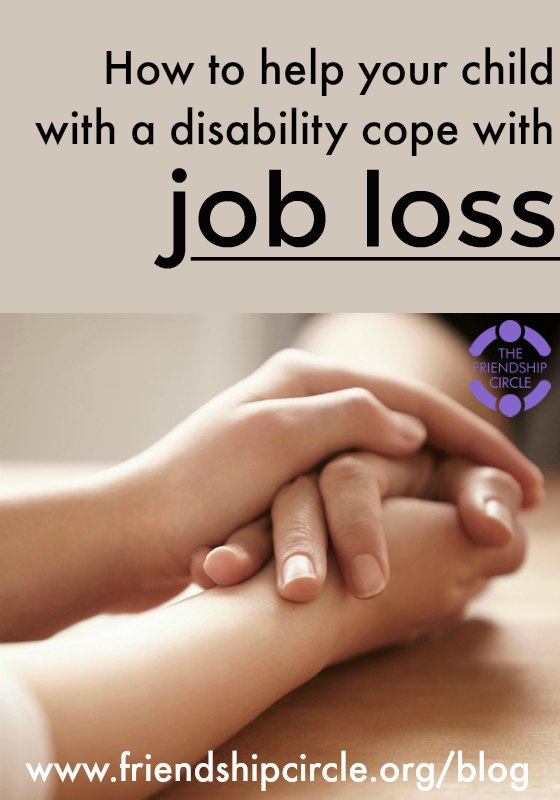
Parenting, Resources 
How to Help Your Child With a Disability Cope With Job Loss
This is, by far, the most difficult article I’ve written. It’s a story of lost opportunities, desperate grief, and — most painful of all — the ways in which my son and my family have failed. But as the father of a son living with disabilities, it pains me even more to quietly watch others make the mistakes we did. After years of keeping my family’s challenges to myself, I’ve become convinced that the best way to improve our children’s lives is to openly share our stories. Secrets, after all, don’t help any of us.Matthew’s Journey to Full-Time Work
My son, Matthew, is 20 years old now, and over the past five years, he’s tested the waters of adulthood with numerous job and volunteer opportunities. Matthew, correctly or not, derives a great deal of self-worth from his job. Don’t you? It’s the typical icebreaker you use when you meet someone; the one-word identity you attach to yourself. But for people living with disabilities like Matthew, I’m convinced self-confidence is even more tied to employment status. Remember, less than one-fifth of the 57 million Americans living with disabilities are employed. People living with disabilities are often told they’re unemployable, and special education programs rarely discuss college options. We are victims of low expectations. A few years ago, Matthew volunteered with a local hospital through his school district. He held multiple positions over his two-year period working there, starting with linen duty. He was great at delivering linens and thoroughly enjoyed the job. At the start of a new year, though, his teacher decided he was capable of more, so she outlined opportunities for him to support surgical teams. Shame on me, but I’ve made a career out of underestimating Matthew and being overprotective, so I worried he wouldn’t succeed in the role. Because he’s both hearing-impaired and autistic, Matthew is dually challenged as a communicator. We decided to give it a try, ultimately, because Matthew had no other clear paths toward a job. Unfortunately, the first surgical position did not go well. It required fine motor skills that didn’t suit Matthew. The second position, however, focused on maintaining surgical suites — a role Matthew took to quickly. He was a productive, well-liked member of the team, putting him on track toward full-time work. But then, as bright as Matthew’s future at the hospital looked, it quickly dimmed. Matthew, like most teenage boys, was learning to control his hormones, and he had an awkward encounter with a co-worker that led to his termination. Regardless of what happened, Matthew’s limited ability to communicate his side of the story worked strongly against us. It was heartbreaking, but we had to move on. The experience was as confusing for Matthew as it was painful. The bus still showed up daily, so he’d still get dressed for his job at dawn. Although we’d told Matthew we needed to find him another position, he didn’t understand. Matthew wanted to work — more so than dozens of employees I’ve managed — and he didn’t want a new job, making the journey even more difficult. The story does finally have a happy ending. Matthew has since found another job, and while his new position doesn’t stretch him like the old one did, he’s happy to be working. Matthew is energetic and enthusiastic again — a change that happened nearly overnight when he was hired. He still talks sometimes about the hospital, but he knows that it’s in the past, and full-time work once again looks within reach.How to Lose Like a Winner
Like Matthew, your son or daughter will eventually lose a job. And although no parent wants to see their child hurt, you must prepare for the grief, frustration, and diminished self-confidence that come with job loss. If Matthew and my family face such a situation again, here’s what we’ll do differently:1 | Don’t bet it all on one horse
Our first — and perhaps greatest — mistake was putting too much confidence in one option. When Matthew lost his hospital job, things looked bleak because we had no backup plan. As we scrambled for leads but turned up nothing, he grew depressed, and full-time work never looked further away. Plan for job loss, even if a job looks airtight. Continue volunteer work, and keep in touch with potential employers.2 | Seek self-worth beyond the workplace
For Matthew, his job was his world, so the sudden loss ripped away a chunk of his identity. Regardless of whether your child is currently employed, help him or her build an identity beyond work. Encourage hobbies, church participation, sports, or other interests to build a multifaceted identity and broaden your child’s social circle.3 | Give grief its due
The pain of a job loss is very, very real. Like Matthew, your child will need time to grieve, particularly if it was a job he or she enjoyed. Consider counseling to put the loss in perspective and help your child move forward. Everyone grieves differently, and we all need love and support when we fall down.4 | Cultivate the confidence to try again
Allow your child time to work through his or her emotions, but begin the job hunt as soon as possible. There is another job out there that they’ll excel in, and each day your search brings you closer to finding it. A child’s job loss is also tough on parents — trust me, I know — so remind yourself of all your child’s strengths and talents. Job loss is a great pain of life, especially for a person living with disabilities. But remember, as I all-too-often forgot: You and your child are never alone. No matter how crushing the loss — and no matter how bleak the future looks — parents like you are out there, and jobs for every skill set are out there, too. Love this post? Pin it on Pinterest here:


